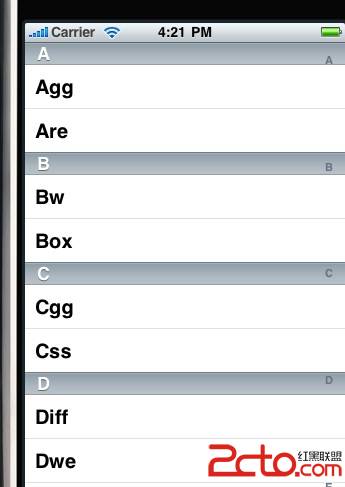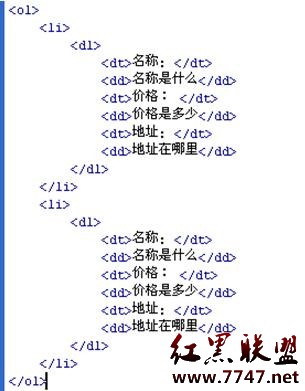一个适用于windows和linux的抓包程序
程序的精髓不在于抓包,而在于对数据包的处理,可以很方便的扩展。
程序如下:/******************************************************************
windows:g++ -o process process.cpp -lws2_32 -DWIN
linux :g++ -o process process.cpp
all right reserve
*******************************************************************/
#include <iostream>
#include <vector>
#ifdef WIN
#include <windows.h>
#include <winsock2.h>
#else
#include <netinet/in.h>
#include <sys/socket.h>
#include <sys/ioctl.h>
#include <linux/if_ether.h>
#include <net/if.h>
#endif
#include "head_ip.h"
#ifdef WIN
#define SIO_RCVALL _WSAIOW(IOC_VENDOR,1)
#endif
using namespace std;
#ifdef WIN
int ioct(SOCKET sniffer);
#else
int do_promisc(char *nif, int sock ) ;
void die(char *why, int n);
#endif
int print_ip(const char * ip_hdr);
struct iphdr * char_to_ip(const char * pkg);
struct tcphdr * char_to_tcp(const char * pkg);
struct udphdr * char_to_udp(const char * pkg);
class processor
{
public:
virtual void print(const char * pkg) const =0;
};
class protocol
{
public:
virtual bool judge(const char* pkg) const =0;
virtual processor* create_processor() const =0;
};
char processor_buffer[sizeof(processor)];
/********************************tcp***************************************************/
class processor_tcp:public processor
{
public:
virtual void print(const char * pkg) const
{
cout<<"-----------------------------------------------------------------"<<endl;
cout<<"this is a tcp packet"<<endl;
print_ip(pkg);
cout<<"source port:"<<ntohs(char_to_tcp(pkg+20)->source)<<endl;
cout<<"dest port:"<<ntohs(char_to_tcp(pkg+20)->dest)<<endl;
cout<<"seq:"<<char_to_tcp(pkg+20)->seq<<endl;
cout<<"ack seq:"<<char_to_tcp(pkg+20)->ack_seq<<endl;
cout<<"ack:"<<char_to_tcp(pkg+20)->ack<<endl;
cout<<"syn:"<<char_to_tcp(pkg+20)->syn<<endl;
cout<<"fin:"<<char_to_tcp(pkg+20)->fin<<endl;
};
};
class protocol_tcp :public protocol
{
public:
virtual bool judge(const char * pkg) const
{
if( char_to_ip(pkg)->protocol==6)
return true;
else
return false;
}
virtual processor* create_processor() const
{
return new(processor_buffer) processor_tcp;
}
};
/*********************************udp*************************************************/
class processor_udp:public processor
{
public:
virtual void print(const char * pkg) const
{
cout<<"-----------------------------------------------------------------"<<endl;
cout<<"this is a udp packet"<<endl;
print_ip(pkg);
cout<<"source port:"<<ntohs(char_to_udp(pkg+20)->source)<<endl;
cout<<"dest port:"<<ntohs(char_to_udp(pkg+20)->dest)<<endl;
cout<<"length:"<<char_to_udp(pkg+20)->len<<endl;
};
};
class protocol_udp :public protocol
{
public:
virtual bool judge(const char * pkg) const
{
if( char_to_ip(pkg)->protocol==17)
return true;
else
return false;
}
virtual processor* create_processor() const
{
return new(processor_buffer) processor_udp;
}
};
/*********************************udp*************************************************/
class processor_icmp:public processor
{
public:
virtual void print(const char * pkg) const
{
cout<<"-----------------------------------------------------------------"<<endl;
cout<<"this is a icmp packet"<<endl;
print_ip(pkg);
};
};
class protocol_icmp :public protocol
{
public:
virtual bool judge(const char * pkg) const
{
if( char_to_ip(pkg)->protocol==1)
return true;
else
return false;
}
virtual processor* create_processor() const
{
return new(processor_buffer) processor_icmp;
}
};
class manager
{
vector<protocol*> container_;
public:
~manager()
{
}
template<typename _Proctocol>
void install_protocol()
{
container_.push_back( new _Proctocol());
}
int create_process(const char * pkg) const
{
for(vector<protocol*>::const_iterator it = container_.begin(); it != container_.end(); it++)
{
if((*it)->judge(pkg) == true)
{
processor * xx=(*it)->create_processor();
return 1;
}
}
return 0;
}
};
int main(int argc,char *argv[])
{
manager mgr;
#ifdef WIN
WSADATA wsaData;
SOCKADDR_IN saddr;
SOCKET sniffer;
int len;
struct sockaddr_in addr;
#else
int sniffer;
#endif
int err;
char *buf1=(char *)malloc(1518);
char *buf=buf1+14;
int num;
if(argc!=2)
{
cout<<"Input error,such as:\n"<<argv[0]<<" 192.168.0.1"<<endl;;
return -1;
}
#ifdef WIN
err = WSAStartup( MAKEWORD( 2, 2 ), &wsaData );
if ( err != 0 ) {
cout<<"error!WSAStartup failed!"<<endl;;
return -1;
}
saddr.sin_family = AF_INET;
saddr.sin_addr.s_addr = inet_addr(argv[1]);
saddr.sin_port = htons(555);
if((sniffer=socket(AF_INET,SOCK_RAW,IPPROTO_IP))==SOCKET_ERROR)
{
cout<<"socket failed!"<<endl;
return -1;
}
if(bind(sniffer,(SOCKADDR *)&saddr,sizeof(saddr))==SOCKET_ERROR)
{
cout<<"bind failed!"<<endl;
return -1;
}
ioct(sniffer);
len = sizeof(addr);
#else
if((sniffer=socket(PF_PACKET,SOCK_RAW,htons(ETH_P_ALL)))==-1)
{
die("socket", 1);
}
do_promisc("eth0", sniffer);
#endif
mgr.install_protocol<protocol_tcp>();
mgr.install_protocol<protocol_udp>();
mgr.install_protocol<protocol_icmp>();
while(1)
{
#ifndef WIN
num = recv(sniffer,buf1,1518,0);
#else
num = recvfrom(sniffer,buf,1500, 0, (struct sockaddr *)&addr,&len);
#endif
if(num>0)
{
if(mgr.create_process(buf)==1)
{
( reinterpret_cast<processor*>(processor_buffer))->print(buf);
}
}
}
#ifdef WIN
closesocket(sniffer);
WSACleanup();
#endif
return 0;
}
#ifdef WIN
int ioct(SOCKET sniffer)
{
DWORD dwBufferLen[10] ;
DWORD dwBufferInLen = 1 ;
DWORD dwByte
补充:综合编程 , 安全编程 ,




